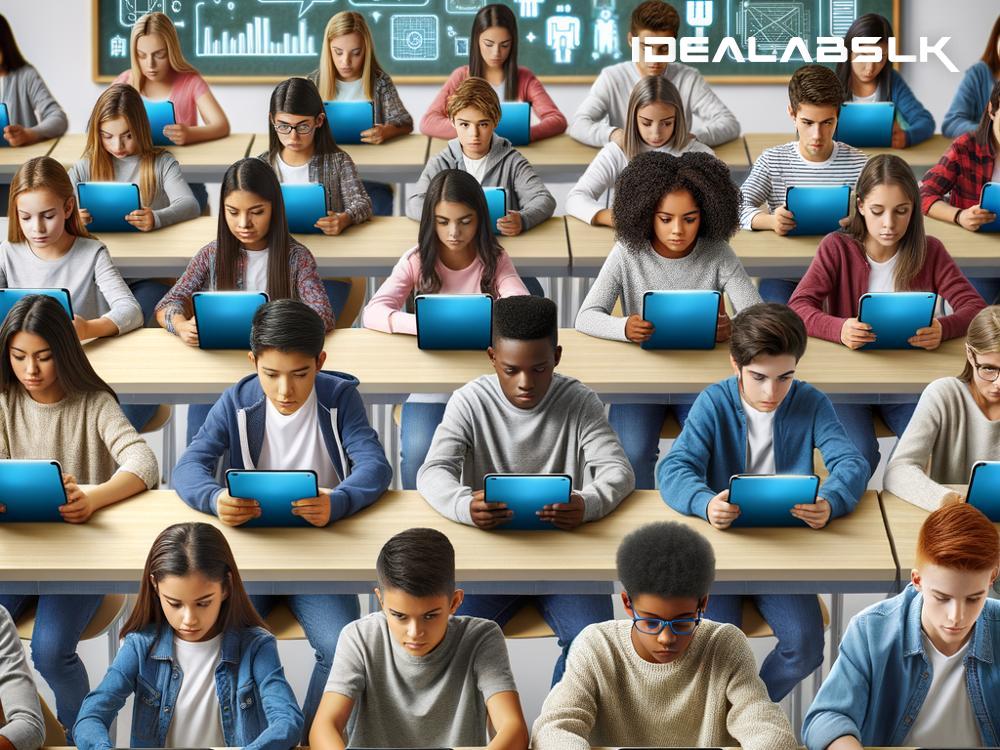How AI is Transforming the World of Learning Apps on Educational Gadgets
In today's fast-paced, tech-driven world, education is no exception to the phenomenon of digital transformation. Learning apps, combined with the latest educational gadgets, are redefining the traditional classroom environment, making education more accessible, interactive, and personalized. At the heart of this revolution lies Artificial Intelligence (AI), a technology that’s playing a pivotal role in enhancing the capabilities of these apps and gadgets. But what exactly is AI, and how is it enhancing learning experiences? Let's dive in.
Understanding AI in Simple Terms
Imagine having a robot as a friend who could learn from you, adapt to your needs, and help you out with tasks. That’s what AI can be likened to – it’s a branch of computer science focused on building smart machines capable of performing tasks that typically require human intelligence. In the context of learning apps and educational gadgets, AI acts as an invisible assistant, continually working to make learning more efficient, personalized, and engaging.
Personalized Learning Journeys
One of the biggest advantages of AI in educational tools is its ability to tailor education to the individual needs of each student. Just like a tutor who understands a student’s strengths and weaknesses, AI-driven apps evaluate the learner's performance and adapt the curriculum accordingly. This means if a child is struggling with fractions but excels in geometry, the app can provide more exercises on fractions until the concept is mastered. This personalized approach helps in maintaining the student's interest and reduces frustration, making learning more enjoyable and effective.
Instant Feedback and Support
Remember waiting days to get your homework graded? AI has changed that by providing instant feedback. With AI, students can receive immediate correction and explanation for their answers, allowing them to learn and improve on the spot. This instant feedback mechanism is incredibly beneficial for retaining new information and correcting mistakes promptly. Moreover, AI-powered apps can offer hints, tips, and additional resources, acting as a 24/7 tutor available at the touch of a button.
Making Learning Dynamic and Interactive
Gone are the days of one-size-fits-all education. AI has made learning more dynamic, with educational apps and gadgets offering interactive experiences that cater to different learning styles. Whether it’s through educational games, virtual reality (VR) scenarios, or interactive quizzes, AI ensures that learning is never dull. These technologies not only make education more engaging but also help students grasp complex concepts more easily by visualizing them in a 3D space or through interactive simulations.
Language Learning Made Easy
Language learning apps are a prime example of AI's capabilities. By using natural language processing (NLP), a subset of AI, these apps can understand, interpret, and generate human language in a way that is both natural and effective. This allows for more nuanced language learning, from correcting pronunciation in real-time to offering conversation simulations with virtual characters. The result is a more immersive and practical language learning experience that can rival traditional classroom settings.
Bridging the Accessibility Gap
AI is also a game-changer for students with disabilities or learning difficulties. Educational apps equipped with AI can offer customized learning experiences suited to the unique needs of every learner, including those who might need more support. For instance, text-to-speech features, voice-controlled interfaces, and AI tutors with natural language capabilities make education more accessible for students with visual impairments, dyslexia, or other challenges. By catering to a diverse set of needs, AI is democratizing education and ensuring that no learner is left behind.
Looking Forward: The Future of AI in Education
As AI technology continues to evolve, so too will the features and capabilities of learning apps and educational gadgets. We can expect even more personalized learning paths, enhanced interactivity, and innovative tools designed to meet the evolving needs of learners worldwide. AI’s role in education is only set to grow, promising a future where learning is not only more accessible but also more aligned with the individual potentials and interests of each student.
In Conclusion
Artificial Intelligence is not just a buzzword in the realm of educational technology; it’s a powerful tool that’s reshaping how we think about learning. By making education more personalized, engaging, and accessible, AI-powered apps and gadgets are not only enhancing the learning experience but are also preparing students for a future where technology and human intellect combine to solve the challenges of tomorrow. As we embrace this digital shift, one thing is clear: the future of education is brighter, smarter, and within reach, thanks to AI.

